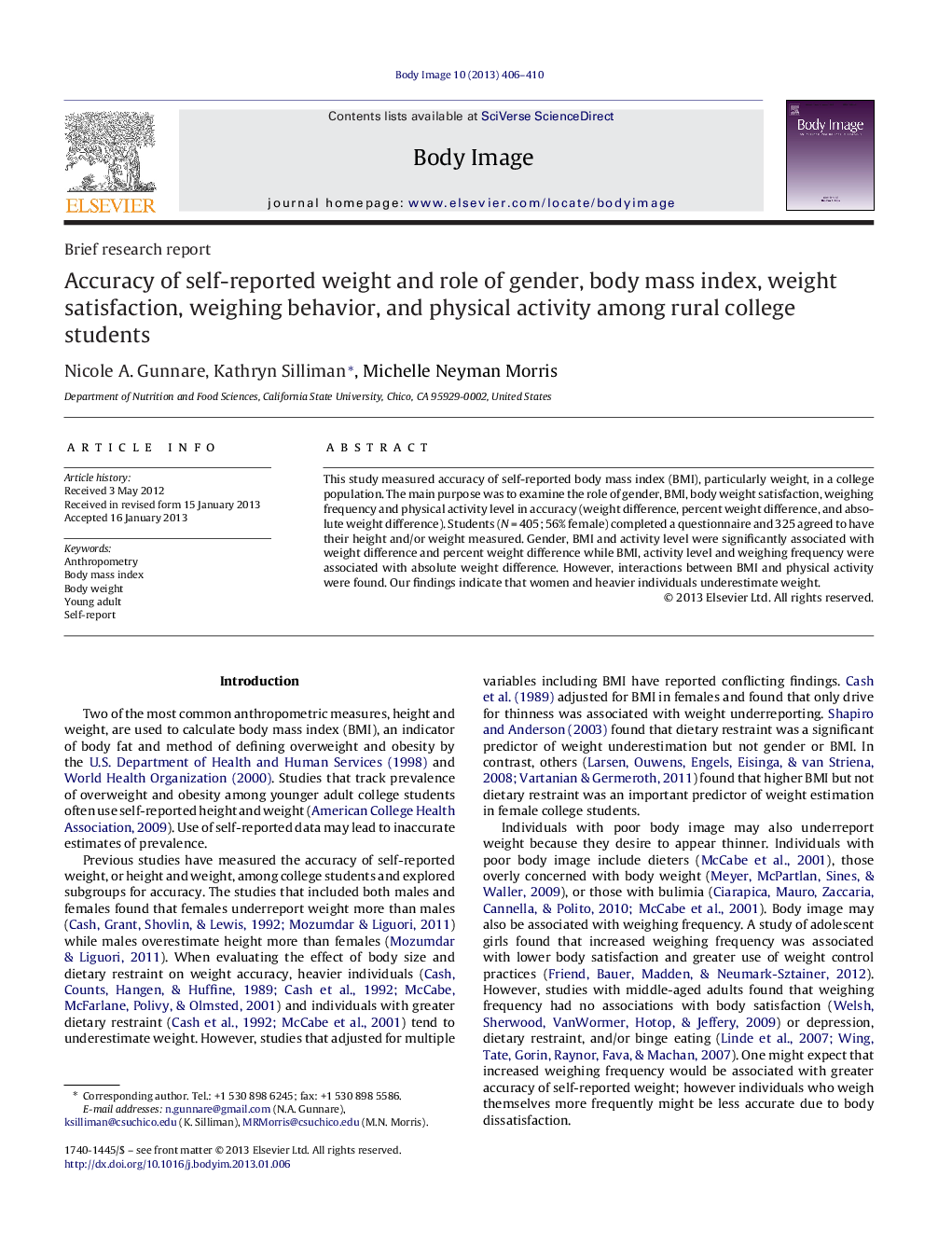| Article ID | Journal | Published Year | Pages | File Type |
|---|---|---|---|---|
| 902983 | Body Image | 2013 | 5 Pages |
This study measured accuracy of self-reported body mass index (BMI), particularly weight, in a college population. The main purpose was to examine the role of gender, BMI, body weight satisfaction, weighing frequency and physical activity level in accuracy (weight difference, percent weight difference, and absolute weight difference). Students (N = 405; 56% female) completed a questionnaire and 325 agreed to have their height and/or weight measured. Gender, BMI and activity level were significantly associated with weight difference and percent weight difference while BMI, activity level and weighing frequency were associated with absolute weight difference. However, interactions between BMI and physical activity were found. Our findings indicate that women and heavier individuals underestimate weight.
► Women underestimate weight (weight difference and % weight difference). ► Heavier individuals underestimate weight and had higher absolute weight difference. ► Higher activity was associated with lower accuracy but interactions were noted. ► There was no association between accuracy and weight satisfaction.
